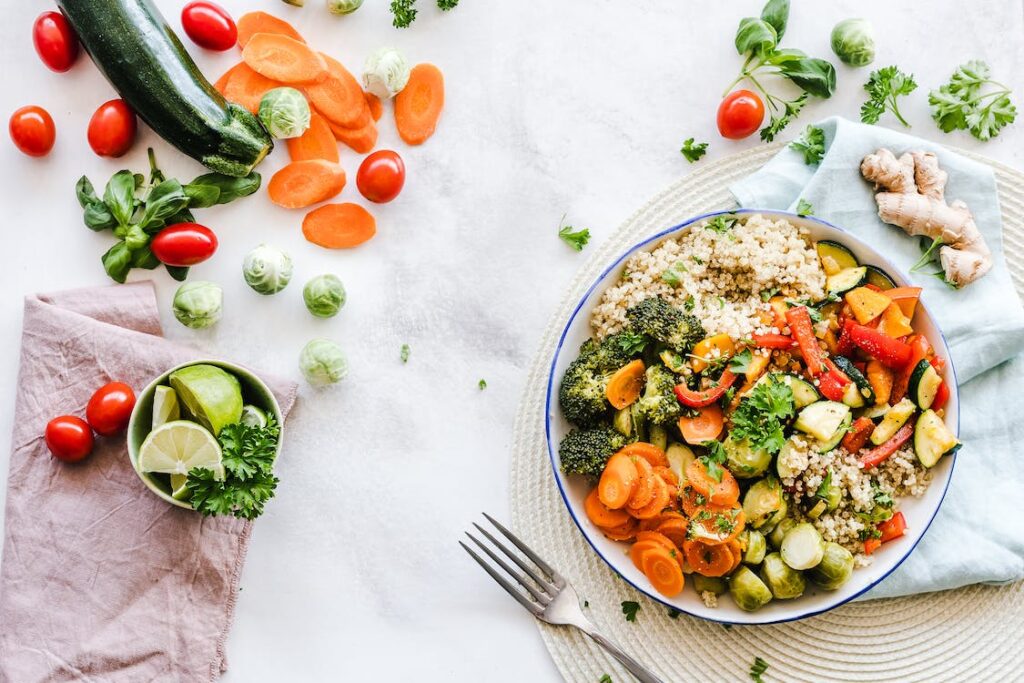Can a Mediterranean Diet Help Prevent Cancer?
By Dr. Punam Rana MD MSc • Medical Oncologist & Wellness Educator
“Is there a diet that can help prevent cancer?”—this is one of the most common questions I’m asked in my practice. We all intuitively know that what we eat shapes our health, both physically and mentally. Over the last few decades, clinical research has begun to answer this question—and one dietary pattern stands out: the Mediterranean diet.It’s important to remember that cancer is a complex, multifactorial disease. No single food or habit guarantees prevention. But the Mediterranean diet, as part of a comprehensive lifestyle, has consistently been linked to a reduced risk of multiple cancers. Let’s explore what this diet involves and why it’s so powerful.
What Is the Mediterranean Diet?
The Mediterranean diet is based on the traditional eating patterns of people in countries bordering the Mediterranean Sea—like Greece, Italy, and Spain. Key features include:
- High intake of fruits, vegetables, whole grains, legumes, and nuts
- Olive oil as the primary source of fat
- Moderate consumption of fish and poultry
- Minimal red and processed meats
- Limited sugar and refined carbs
- Use of herbs and spices instead of salt
- Moderate alcohol, often in the form of red wine
How the Mediterranean Diet Supports Cancer Prevention
Rich in Antioxidants and Anti-inflammatory Compounds
Fruits and vegetables are the foundation of this diet and provide antioxidants like vitamins A, C, and E, and carotenoids such as beta-carotene and lycopene. These help reduce inflammation and neutralize free radicals—two key processes in cancer prevention.
High in Fiber
Whole grains, legumes, and vegetables offer ample fiber, which supports gut health and may reduce the risk of colorectal cancer. Fiber also stabilizes blood sugar and insulin—important in lowering diabetes-related cancer risk.
Low in Processed Foods
Minimizing processed foods—especially those high in sugar, salt, and unhealthy fats—helps reduce the risk of colorectal, breast, and other cancers linked to highly processed diets.
Rich in Healthy Fats
Monounsaturated and polyunsaturated fats from olive oil, nuts, and fatty fish support heart health and reduce inflammation. These fats may help lower the risk of breast and prostate cancers in particular.
Moderate Alcohol Consumption
Red wine, consumed in moderation, contains polyphenols and antioxidants like resveratrol. These may offer some protective benefits, but excess alcohol increases the risk of several cancers—so moderation is key.
A Whole-Person Lifestyle
Beyond the plate, this way of living emphasizes movement, connection, and joy. Mediterranean lifestyles often include physical activity, strong community ties, and reduced stress—all essential elements of cancer prevention.
Evidence for Cancer-Specific Protection
Colorectal Cancer
People who follow a Mediterranean diet have a lower risk of colorectal cancer, likely due to its high fiber content and anti-inflammatory nutrients that support a healthy gut environment.
Breast Cancer
Studies suggest that women who adhere to a Mediterranean-style diet have a significantly lower risk of breast cancer. Phytochemicals from fruits, vegetables, and olive oil appear to play a role in cellular protection.
Prostate Cancer
Men who consume a Mediterranean diet—especially rich in tomatoes and olive oil—may be less likely to develop aggressive prostate cancer. Lycopene, found in cooked tomatoes, is a key antioxidant thought to reduce DNA damage.
Lung Cancer
A Mediterranean dietary pattern has been linked to a 13% reduced risk of lung cancer. This may be due to its abundance of beta-carotene, vitamin C, and other antioxidants that protect respiratory tissue.
Final Thoughts
The Mediterranean diet offers a powerful, evidence-based approach to cancer prevention. By focusing on whole, unprocessed foods and a lifestyle grounded in balance, you can significantly reduce your risk of cancer while enhancing your overall health and well-being.
Eat more plants. Choose healthy fats. Move your body. Share meals with people you love. These simple actions can make a profound difference in your long-term health—and they start with your next bite.





